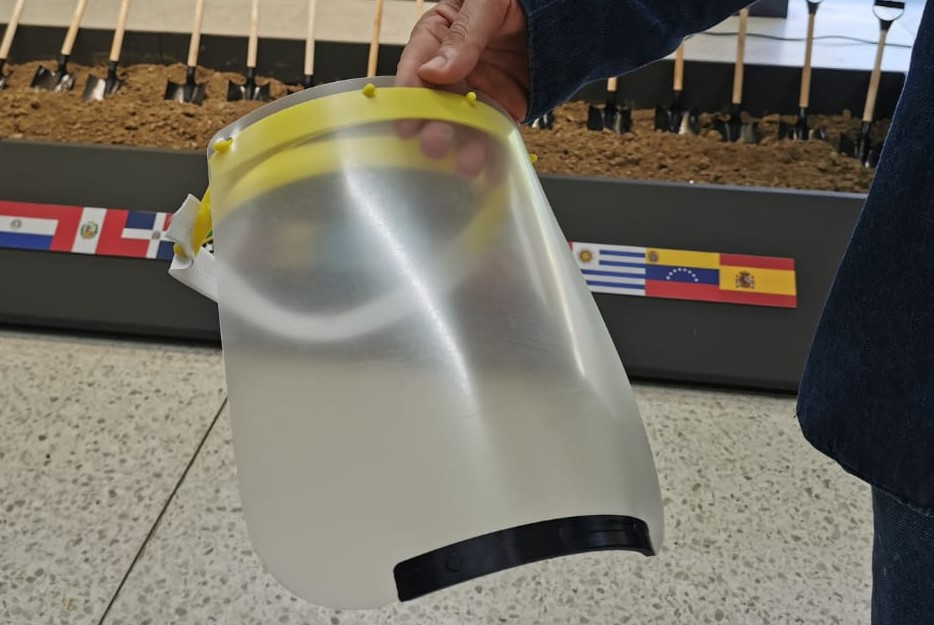IICA responded to an appeal by Costa Rica’s Ministry of Science, Technology and Telecommunications (MICITT) to bolster the country’s health services in tackling the Coronavirus pandemic.

San Jose, 2 April 2020 (IICA). The Inter-American Institute for Cooperation on Agriculture (IICA) joined a network of Costa Rican government institutions, academia, private sector entities and professionals that will manufacture protective masks and other health inputs for staff treating Covid-19 patients.
The “ColabCR: Diseño Colaborativo Costa Rica” network, which will be coordinated by the country’s Ministry of Science, Technology and Telecommunications (MICITT), is a forum that will serve to generate ideas, knowledge, products and infrastructure to tackle the emergency situation.
Luis Adrián Salazar, the Minister of MICITT, announced that, “We are appealing to universities, Fab Labs, research and development labs, companies, organizations and individuals, so that we can join forces to fight this pandemic”.
In response, IICA has offered the services of some of the technical staff of its Digital Fabrication Lab for Agriculture (FabLab)—an initiative developed in partnership with this Ministry—and has thrown its support behind actions to strengthen the operations of the Costa Rican health system.
“If we are to overcome this emergency that is endangering the health of millions of people in the world, it is imperative that we adopt a coordinated and participatory response”, said Manuel Otero, Director General of IICA. “Moreover, as an agency specializing in agriculture, we are innovating and seeking solutions for the agrifood and rural sectors”.
Moreover, he stressed that, “This situation further reinforces our conviction that we must move towards achieving Agriculture 4.0 and provide cooperation that will equip Latin American and Caribbean countries with additional tools to tackle this and other challenges, through the use of technology”.
“We have been monitoring the situation in various countries and the advances that they have been making in manufacturing 3D models, so that we can join these efforts in an effective way and in keeping with the specific national circumstances”, said Jonathan Castro, the IICA Project Specialist who is leading the initiative.
The idea is based on open source designs that have been shared and refined in recent times, given the depletion of global supplies of masks and other critical resources to prevent the spread of the Coronavirus.
The products developed by IICA will be considered as free-access public goods. They will be made available to the public health sector, where needed.
More information:
Miguel Arvelo, Chief of Staff / IICA Representative in Costa Rica.
miguel.arvelo@iica.int











